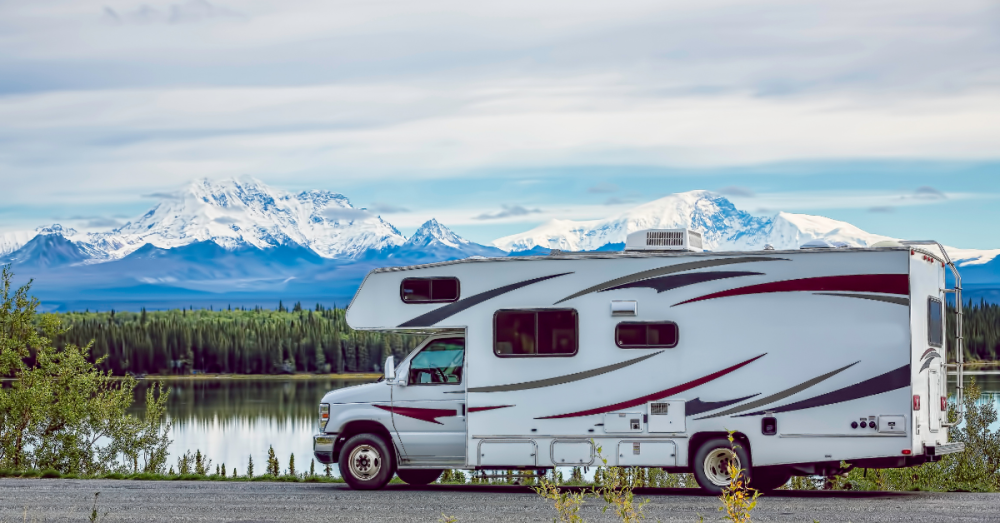6 Best RV Insurance Tips from Experts: What to Consider When Buying a New Policy

If you’re a new RV owner or are simply looking for a new insurance plan, taking time to consider your options is essential. Insurance policies can vary dramatically in price and coverage, and every company handles policies differently.
However, choosing the best RV insurance policy and company is critical to gaining the coverage you need. As RV insurance experts, our Encore Insurance team knows how to select the right coverage. Read on to learn our six tips and things to consider when buying a new policy.
-
Know Your RV And Your Situation First
When you apply for a new insurance policy or receive quotes from different companies, you’ll need to supply extensive information about your vehicle and your habits. Gathering all of the information you need in advance can save you time as you narrow your options and identify the best policy.
Generally, you’ll need to answer the following questions as part of a quote or application:
- How do you use your RV? For example, do you live in it full-time or occasionally use it for vacations and short trips?
- How old is your motor home?
- What is the make and model of your RV?
- What is the vehicle’s mileage?
- What is your RV’s class? RV classes include class A, class B, and class C.
Considering the RV’s conditions and your habits can help you choose the right policy and know whether your homeowners insurance will provide any coverage in the meantime.
-
Understand the Types of Coverage In Each Policy
Insurance policies can include various types of coverage. Most policies come with base-level coverage, allowing RV owners to add additional coverage if needed.
Here are the most common types of coverage included in RV insurance policies:
- Liability insurance: Covers physical damage or injuries your vehicle causes in an accident
- Collision insurance: Covers physical damage to your RV resulting from accidents
- Comprehensive insurance: Provides fuller coverage for injuries and property damage from other drivers, floods, fires, falling objects, vandalism, and other accidents
- Vacation liability insurance: Covers personal liabilities from your vehicle while it remains parked away from your property
- Personal effects insurance: Covers items inside the vehicle that become damaged or lost
- Uninsured coverage: Provides coverage for injury or property damage at the hands of another driver who is uninsured or underinsured
Your insurance provider or agent can break down each of these coverage options before you begin a new policy.
-
Examine Coverage Limits Closely
Not only should you fully understand the coverage types included in RV policies, but you should also be aware of the limits of those coverages before proceeding with a new policy. Coverage limits indicate the maximum amount your insurance provider will pay for your RV insurance claim.
For example, Michigan has minimum vehicle insurance requirements of $20,000 per person for bodily injury coverage and $10,000 for property damage. However, many RV drivers view these limits as too low, opting to increase them for their RV insurance policies.
-
Ask About Agreed Value
If your RV were to become totaled in an accident, your RV insurance policy could provide you with funds to purchase a new vehicle. However, you want to make sure that you and your insurance company are on the same page about your RV’s value. If not, your insurer could offer you less money than you expect after an accident.
Agreed value coverage is a type of coverage in which you and your insurance company agree upon the vehicle’s value before starting your insurance policy. As a result, if you ever total your vehicle, you will know ahead of time how much your insurer will provide to purchase a new RV.
Agreed value policies may also allow you to save money on your premium. For example, if you decide to decrease the agreed value of your vehicle by a few thousand dollars, your premium may drop as well. Your insurance agent can help you evaluate how to best handle this.
-
Consider Suspending Coverage During Off Seasons
If you only use your RV during specific months of the year, such as the summer or fall, you may want to consider suspending some of your insurance coverage during the off months.
For example, if you plan to leave your vehicle parked on your property for several months at a time, you can consider suspending your collision coverage while maintaining comprehensive coverage.
Collision coverage insures you against accidents, which you probably won’t encounter while parked. Meanwhile, comprehensive coverage insures you against theft and vandalism, which you may encounter.
-
Invest In Roadside Assistance
Most insurance companies offer roadside assistance as an add-on to RV insurance policies. Roadside assistance is one of those bonuses we always recommend for our customers at Encore Insurance.
There’s nothing worse than encountering an issue, such as a flat tire, a dead battery, a broken windshield, or another mechanical issue, that disrupts your travels. However, having roadside assistance can ensure that you receive timely service when you encounter a problem.
At Encore Insurance, we make the process of choosing the best RV insurance policy quick and easy. We’ll assess your needs, recommend valuable add-ons, and present an affordable premium that suits your budget. Of course, we’ll also be available to answer any questions you may have along the way.
Contact our Encore Insurance team today at 248-466-0200 to get a free quote.
